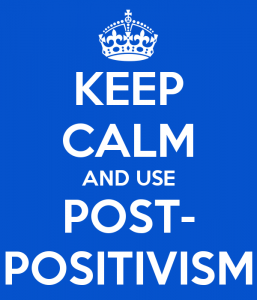 Since completing my Annotated Reference List and Theory Reflection, I’ve started to take note of the models and theories I am seeing in the literature so far. At this point in time, I can see theory shaping my research and study in two separate, yet parallel ways. The first is in how it will shape the content of my study, or in other words, the “what” of the study. The second will be in the method, or the “how” of the study. With regard to content, I’m focusing my study on students who “bounce back” from poor academic performance early in their college careers to become high achieving students as upperclassmen. In particular, I’m focusing on the concept of academic buoyancy originally developed by Martin and Marsh (2008):
Since completing my Annotated Reference List and Theory Reflection, I’ve started to take note of the models and theories I am seeing in the literature so far. At this point in time, I can see theory shaping my research and study in two separate, yet parallel ways. The first is in how it will shape the content of my study, or in other words, the “what” of the study. The second will be in the method, or the “how” of the study. With regard to content, I’m focusing my study on students who “bounce back” from poor academic performance early in their college careers to become high achieving students as upperclassmen. In particular, I’m focusing on the concept of academic buoyancy originally developed by Martin and Marsh (2008):
“Academic buoyancy has been defined as a capacity to overcome setbacks, challenges, and difficulties that are part of everyday academic life” (Martin, 2013, p. 488).
This emerging concept has its roots in educational psychology. Martin and Marsh specifically mention positive psychology and the “broaden and build theory of positive emotions” (2006, p. 54). According to the website for UNC’s Positive Emotions and Psychophysiology Lab:
“Barbara Fredrickson developed the Broaden-and-Build Theory of Positive Emotions to explain the mechanics of how positive emotions were important to survival. According to the theory, positive emotions expand cognition and behavioral tendencies. Taking issue with the view that all emotions lead to specific action tendencies, the theory argues that positive emotions increase the number of potential behavioral options.”
Constructs that are highlighted in the literature in relation to academic buoyancy and its related concept, academic resilience, include motivation, engagement, self-efficacy, coping, and anxiety.
At the same time that I am very interested in developing a study around this concept of academic buoyancy, I do not come from an educational psychology background myself. I may frame my research within a student development theory that acknowledges both the psychological/developmental aspect of buoyancy as well as the sociological/institutional role. I’m particularly interested in Astin’s I-E-O Model and Theory of Involvement. I like how it “occupies the middle ground between psychological and sociological explanations of student change” (Pascarella & Terenzini, 2005, p. 53). I am also interested in Weidman’s Model of Undergraduate Socialization, which acknowledges the importance of non-institutional factors like parents, peers, employers and community organizations. Finally, I have just started reading more about Schlossberg’s Transition Theory. This may be particularly relevant to my study, with the focus on how adults react to an event (in my study, poor academic performance), their perception of the transition, individual and environmental factors, and their adaptation.
References
Martin, A. J. (2013). Academic buoyancy and academic resilience: Exploring ‘everyday’ and ‘classic’ resilience in the face of academic adversity. School Psychology International, 34(5), 488-500.
Martin, A. J., & Marsh, H. W. (2008). Academic buoyancy: Towards an understanding of students’ everyday academic resilience. Journal of School Psychology, 46(1), 53-83.
Pascarella & Terenzini (2005). Chapter 2: Theories and Models of Student Change in College.



